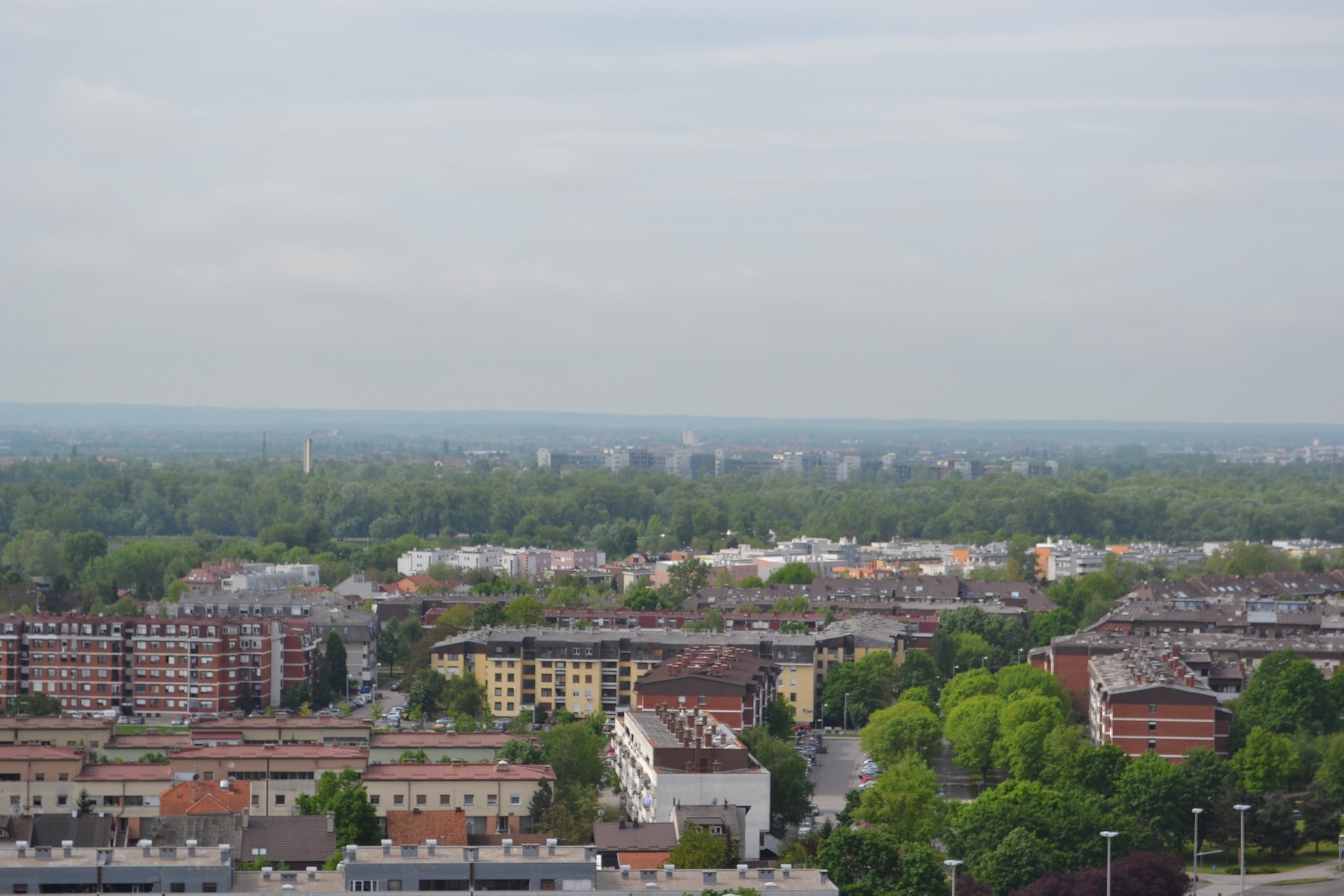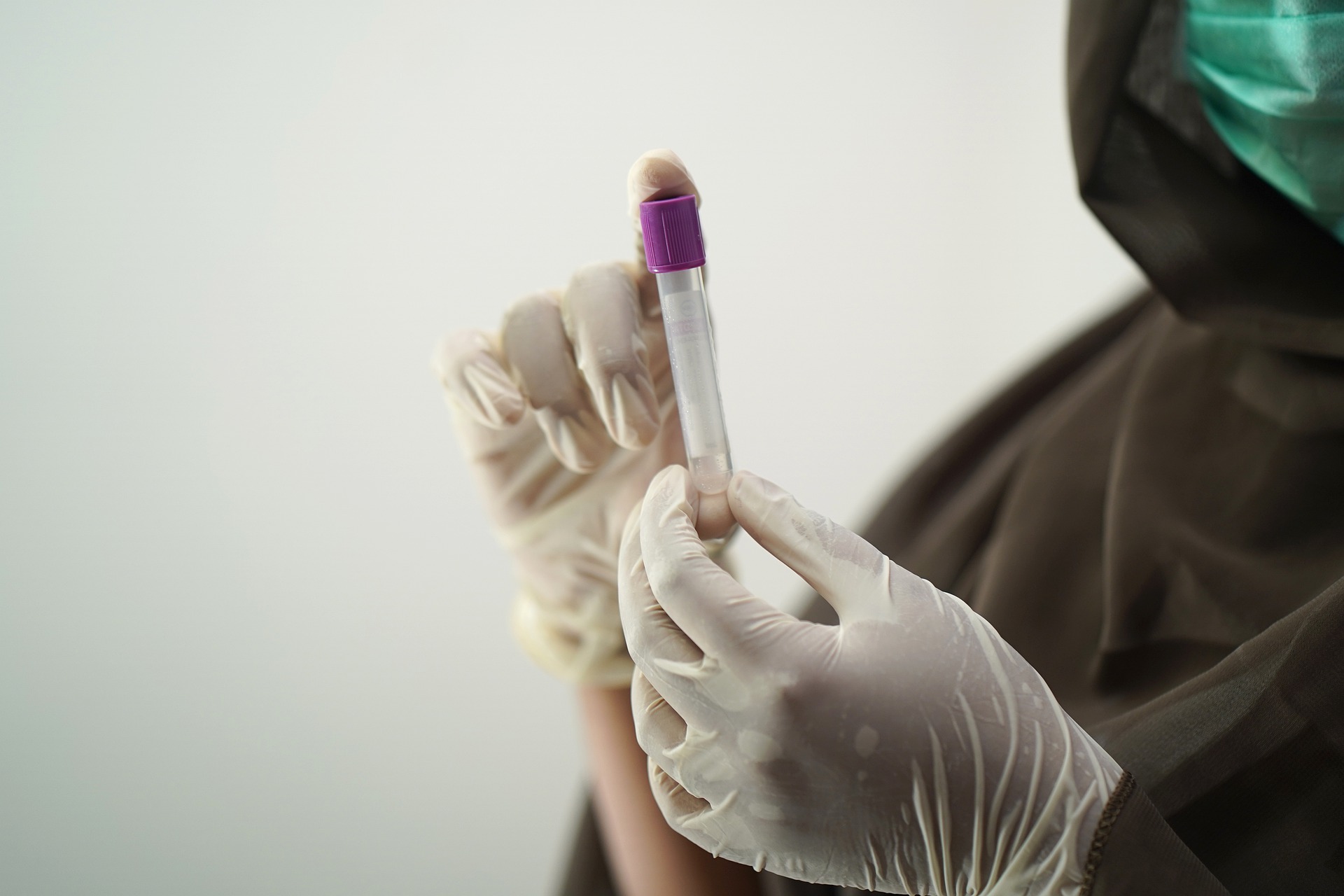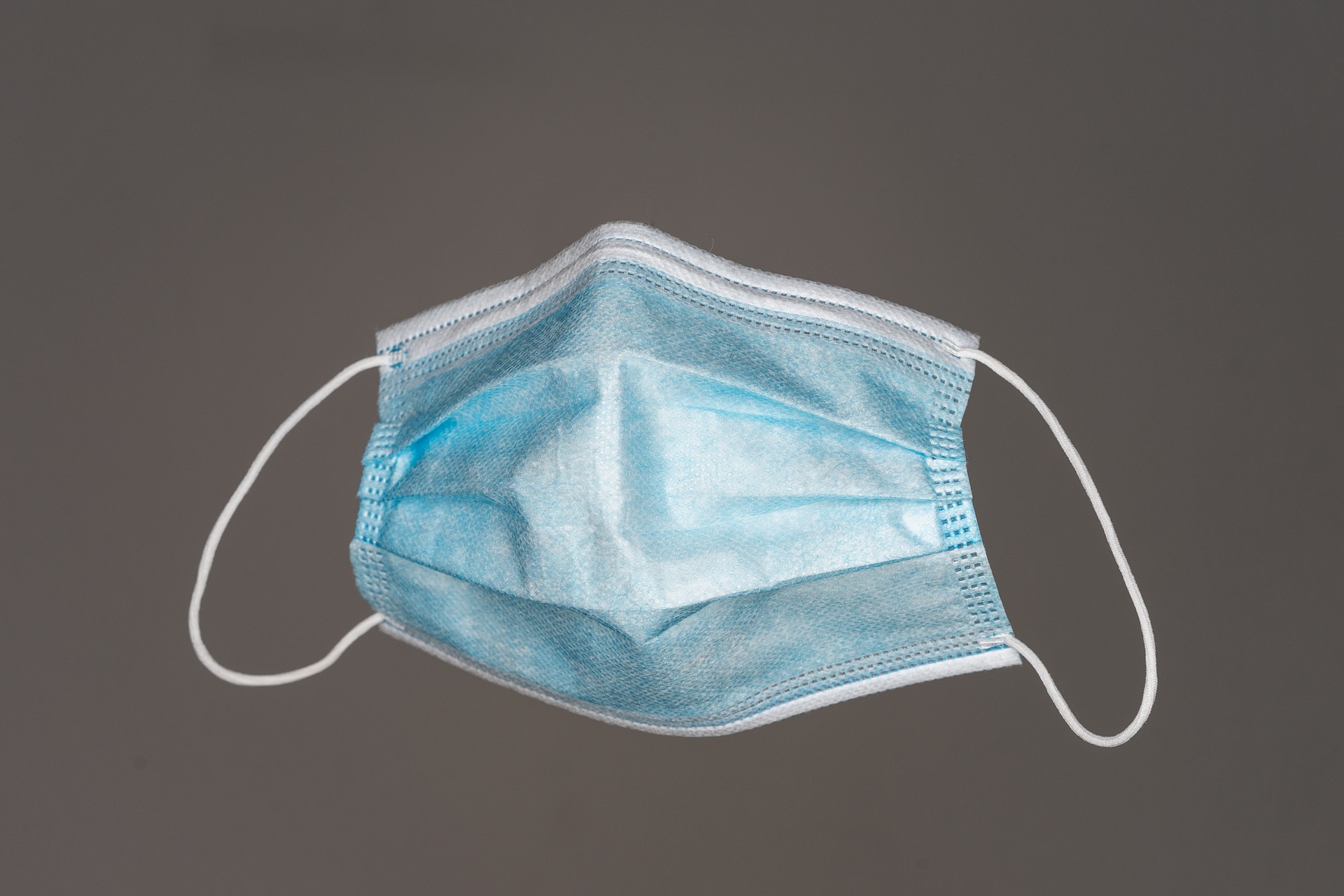Croatian Healthcare Workers: Christmas's Forgotten Heroes?
December 28, 2020 – Amidst the difficulties of a second lockdown, a socially distanced Christmas and yet more earthquakes, have we forgotten about Croatian healthcare workers? TCN decided to interview a doctor working on the front line of the fight against COVID
During the first lockdown, it was all about the balconies. Saxophonists, DJs, opera singers – we were entertained on social media by a string of balcony-based stunts that somehow showed resilience, community spirit, humour. Zagreb was no exception. A trend of clapping on balconies in appreciation of healthcare workers passed from country to country and was picked up in Zagreb. After the applause finished, people went back inside. Nothing much had changed. It was a nice enough gesture.
Since the start of summer, no such applause has been heard. Perhaps the release from lockdown gave the signal that the lives of Croatian healthcare workers had also become much easier? That certainly wasn't the case. Though the number of people infected with COVID has grown significantly over recent weeks, Croatian healthcare workers have been treating people sick with COVID since springtime.
Croatian healthcare workers are currently busier with COVID patients than at any time before. And yet, there are no more trips out onto the balconies to show our appreciation for them. Perhaps it's now too cold outside? Perhaps some aren't aware how busy Croatian healthcare workers currently are with COVID patients? Are we perhaps guilty of taking Croatian healthcare workers for granted? Or, maybe we have simply put Croatian healthcare workers to the back of our minds as we struggle with our own challenges?
Throughout this year, TCN has been pleased to report many instances of generosity and innovation directed towards the fight against COVID. Certainly, not everyone in the country is guilty of forgetting about the Croatian healthcare workers who are on the front line fighting this disease. But, how much impact do these instances have on the general lives of Croatian healthcare workers? What is it like to no longer hear the nightly appreciation from our balconies? And, just what is life like as one of the many Croatian healthcare workers battling COVID in the year of the pandemic? TCN decided to interview one to find out.
The doctor we spoke with is a resident physician, working at a smaller community hospital in the continental part of Croatia. They agreed to speak with us on the condition that they do so anonymously.
Looking back at the first lockdown, we didn't know so much about COVID back then. We didn't know exactly how it was spread, the different manifestations of the disease, what course the disease took, nor what the recovery could be like. I think the government did a really good job of responding to the threat as they saw it. We had a small spike in cases, but that is minuscule to what we have now.
I think people generally did what they were told because they thought it would be temporary and they could see the sense in starving the disease out.
At the hospital, we were at first caught a little off guard with the amount of PPE we had and some other resources that we needed. For ICU and ventilators, we were well equipped.
Some of the residents were given some paid leave. It was important to put human resources into tiers. Croatian healthcare workers were certainly more predisposed to catching the disease, simply because they were around it every day.
After such great early successes, I was surprised that everything was relaxed later on to allow the tourist season to take place how it did, and for events like the Vukovar commemoration. It felt like it was a calculated risk. The lockdown we are now in is perhaps too little, too late. The disease is out there now, wild. The numbers of infected people are significantly higher.
The difficulty with this disease is that people can be infected and have very few or no symptoms at all. They might not know they are spreading the virus. You might not know you're sitting next to someone who has it.
Even though we're not at the centre of care for a major population area or city, we saw cases of the disease almost immediately. Our community hospital services an area containing around 150, 000 people. The first cases in April came from nursing homes – elderly, vulnerable people, many with pre-existing conditions. We were well equipped to handle it. Now, we are stretched on a daily basis. We fill the beds with sick people as soon as we empty them.
We wear masks and PPE all day, all the time. All Croatian healthcare workers in hospitals currently do this. Every patient who comes in, regardless of their symptoms, we treat them as though they are carrying the disease.
A lot of residents like me, who are working towards getting their specialty, go to do some periods of work in larger hospitals in the bigger cities. Now, many of those residents have been called back to their community hospitals – we are short on human resources.
The hospital has had to restructure itself significantly. Lots of doctors have been asked to provide cover in the emergency department. Over half of that area is now fully dedicated to COVID.
What do COVID patients look like in regards to their symptoms? It depends on their age and risk group, but you see people who look like they have flu or bacterial pneumonia, you see people who are in acute respiratory distress. Sometimes they have neurological changes, some of them look like they have had a stroke. Some people who have been infected and have supposedly got over the worst of the symptoms, come back in after a month or two with blood clotting problems – blood clots in the legs, which have a tendency to travel up to the lungs and cause a pulmonary embolism. That's a pretty big medical emergency. Some who have pre-existing heart conditions come in with a heart attack triggered by them catching COVID – it's more complicated trying to revive someone when you know they have COVID. The presentation of the disease is so variable.
It's not only older people. I've seen young people be admitted with serious reactions to COVID - young, healthy people who have no pre-existing conditions. I've seen young people come in with mild symptoms, they are sent home with antibiotics and steroids. That is the standard treatment – antibiotics to prevent a bacterial super-infection and steroids to prevent an acute reaction by the body's immune system to COVID. - that's what can cause big problems later on, in the course of the illness. But, sometimes that's not enough. I had a young patient just last week - super healthy, worked out regularly, no pre-existing conditions – and his lungs just looked awful. He had to go to the ICU immediately (sadly, this patient later died). That's like no disease I've ever seen before. Really, COVID is a completely new kind of animal.
The new strain of COVID? There is evidence that it can be spread more easily, and that it can affect more younger people, but there is no evidence that it is any more severe. The vaccines will work against it.
We're short on ventilators now. Really, we need two free ventilators at any time, in case there is an emergency admission. We are not currently in the position where we always have two free ventilators – sometimes they are all in use. That's a worry. I worked one shift where the anaesthesiologist said “We just don't have any more space for them – we will just have to put them in the hallway”. I've never seen that before.
I've heard of Croatian healthcare workers, colleagues in other hospitals getting sick with COVID and the hospital asks them to prove they got sick at work. It's pretty clear that's the most likely place they would have got sick because they're working with COVID patients. They were forced to be off work, but only on a lower level of sick pay. If you get ill because of being at work, you get full pay. But, they couldn't prove it, so they didn't get that.
I've been lucky – I haven't caught COVID yet. Well, as far as I know. My pay hasn't gone down, it's gone up – but only because I'm working so many double shifts. I volunteer to provide cover when other members of staff get sick. The specialists – the consultant doctors – they have it worse than us resident doctors. They are more responsible, so they are expected to work more hours. Nobody is pressured or threatened into picking up extra shifts, it's just something that almost all of us just do.
I've read some nice stories about fundraising efforts and donations to Croatian healthcare workers and hospitals in different parts of the country. Everything is appreciated. But, I personally haven't seen any effect of that on our day to day lives at work. Not at our hospital. Maybe there were PPE donations or cash donations, but it hasn't impacted the daily lives of me and the Croatian healthcare workers who are my colleagues. I think I heard that a local garage was giving free cups of coffee if you show your medical ID. Every little is appreciated.
For me and the Croatian healthcare workers who are my colleagues, instead of any kind of personal discounts or donations to staff, we would much prefer if people just took this disease more seriously. Things look very different when you work in a hospital compared to someone outside who maybe doesn't know anyone who got sick.
I came off a particularly difficult double shift a couple of months ago – it was just non-stop COVID admissions, some severe cases. As I was walking home, I walked past a bar that's near to the hospital. They had signs on the walls telling people to keep their distance. But, the bar was absolutely packed – full of young people. It just felt so disappointing. I couldn't help but think of the older relatives they would come in contact with, some who might get really sick.
Instead of people clapping on balconies, I think Croatian healthcare workers would just prefer more general vigilance and personal responsibility – wear your mask, wash your hands regularly, no more parties in the basement. Clapping on balconies is a nice gesture, but ultimately it's an empty one.
How does it feel to know that there are some people out there, in every country, all around the world, who believe COVID is a hoax, or a plot, or not so serious, or that the vaccine is dangerous or something other than what it is?
Well, it's not always the content of the conspiracy theory that appeals to these people as much as it is their inability to accept facts – the truth – because they have little faith in the authorities that are telling them this. Here in Croatia, I think that distrust is quite high – a lot of people are disillusioned with the state and politics, because of corruption. Sometimes over 50% of the population choose not to vote. The dissemination of misinformation over social media doesn't help - if that's where people get their news from. If you look at that example from your own country, where strict measures about movement were put in place by your government, and immediately afterward, the Chief Advisor to the Prime Minister, was caught breaking them to travel across the country with his family to a second home in the countryside, going out on day trips. And he was defended by his colleagues after he was found out! When people see those kinds of things happening, the distrust between people and the authorities just grows.
All of the images in this article are used as illustrations only. None of the places or people depicted are in Croatia or Croatian, except for the first image, a panorama of Zagreb
Beros: COVID Crisis Has Cost Health System HRK 927.4 mn
ZAGREB, Dec 21, 2020 - Health Minister Vili Beros said on Monday that the COVID crisis had so far cost the health system HRK 927.4 million.
Data show that by December 18, HRK 574.4 million was spent on testing, HRK 268.9 million on treatment and more than HRK 83 million on sick leaves, Beros said at the national COVID-19 crisis management team's press conference.
He also said that a meeting was being held at the Health Ministry with drug wholesalers regarding the health system's debt to them.
Beros said that the number of new COVID-19 infections had started dropping.
The average number of services provided in all health institutions in Croatia is at 67.21% compared to the second week of December 2019.
"These are encouraging data as they show that despite the burden of COVID-19 positive patients we are finding ways, strength and opportunities to respond to other needs, especially in oncology," Beros said.
Despite the fact that the health system has completely adapted to COVID patients, the number of services provided in Zagreb's hospitals is at 74% compared to the second week of December last year, and only the KB Dubrava hospital, which is completely focused on treating coronavirus patients, has provided 11% of other services.
Other patients using KB Dubrava's services, 3,993 of them, have been sent to other health institutions via the call centre, Beros said.
He added that there were also institutions like the Magdalena Clinic which is at 119% of provided services due to taking over some of KB Dubrava's cardiac surgery patients.
Beros said there would be no changes regarding the realisation of the right of health workers to a full salary after getting infected with COVID.
He said that all those who had got infected at work would receive 100% of their salary, but they have to ask their employer for confirmation.
(€1= HRK 7.5)
2020 Corona Crisis as Test of Strength of Croatia's Economy and Public Finances
ZAGREB, Dec 19, 2020 - The outgoing year 2020, which was supposed to have been a year of continued economic growth, has turned into a year marked by the COVID 19 pandemic that has tested the strength of public finances.
At the very beginning, 2020 seemed to be similar to the previous five or six years: nine laws regulating tax changes ushered in the fourth round of a tax reform which shouldincrease the post-tax disposable income by HRK 2.4 billion. The ordinary pace of the social and economic activities continued against a background of more and more information about the spread of the coronavirus infection in China.
25 February - 1st registered case of coronavirus infection in Croatia
On 25 February, Croatia's health authorities reported that they had confirmed the first case of the infection with the novel virus in the country. Immediately after that, citizens rushed to stores to buy large quantities of food and hygienic products. Traffic across borders was also made more difficult due to a high number of passengers going back home and stringent controls at border crossings.
On 12 March, Prime Minister Andrej Plenkovic announced first anti-COVID restrictive measures and reassured the enterprise sector that compensatory measures for businesses were being hammered out. The PM put an emphasis on the retention of jobs.
In mid-March, the Croatian National Bank (HNB) assessed that the earlier forecasts of economic growth would have to be revised, and for the first time in its history the central bank purchased state bonds in the amount of 213 million kuna.
HNB-ECB swap line deal, 1st set of measures to offset lockdown damage to economy
In March, the HNB conducted five interventions on the foreign exchange market to maintain the stability of the exchange rate of the kuna, selling a total of € 2.25 billion. Since then, it has also taken some other measures to mitigate the economic impact of the coronavirus pandemic. The HNB also released HRK 3.8 billion to banks in a structural operation and HRK 1.85 billion in regular ones in that period.
In mid-April, the HNB said it had agreed with the European Central Bank (ECB) to set up a precautionary currency agreement, known as a swap line, that will allow the HNB to borrow up to €2 billion from the ECB in exchange for Croatian kuna. The HNB said in a press release that the precautionary currency swap line would be activated if needed.
This swap line gives the HNB "the space to provide additional euro liquidity to Croatian financial institutions, should they need it, without using its own international reserves."
The central bank said that it "will notify the ECB of the use of euro liquidity acquired through the currency swap line. The currency swap line will remain in place until 31 December 2020, and can be extended if necessary."
In the second half of March, public events and gatherings were cancelled, and the government and the parliament adopted the first HRK 30 billion-worth set of compensatory schemes, with the aim of retaining jobs and ensuring funds for wages. The government also financed a minimum net monthly wage of HRK 3,250. The first package, worth HRK 30 billion (€4bn), included 63 measures aimed at those that were already feeling or were yet to feel the consequences of the crisis.
Lockdown and earthquake
Croatia went into a lockdown on 19 March and on 22 March, Zagreb and its environs were hit by an earthquake with a magnitude of 5.5 on the Richter scale which kille a teenage girl in downtown Zagreb and caused serious material damage, estimated at HRK 42 billion, in the city and nearby counties. Currently, 12 billion kuna has been made available for the reconstruction as an initial fund coming from the EU Solidarity Fund plus a US$ 200 million loan provided by the World Bank.
The fund for the post-earthquake reconstruction of Zagreb and two neighbouring counties has been established in the meantime, with renowned manager Damir Vandjelic at its helm. He has said that the total revenues of the construction sector in Croatia in 2019 came to 18 billion kuna, whereas the activities in the reconstruction of quake-damaged buildings would bring 3-4 billion kuna annually.
2nd set of compensatory measures
In April, the government introduced the second rescue package to save jobs and help the economy, including increasing the net minimum wage to HRK 4,000 (€725). In total, the state was expected to pay HRK 5,460 per employee as a furlough measure in April, May and June. The state funded the measure with HRK 8.5 billion.
Secondly, the government partly or fully exempted some businesses from taxes for April, May, and July (12 billion kuna).
The third measure in this package applied to VAT payments, making possible for companies to defer such payments until the billing of invoices issued.
In mid-April, the Croatian parliament unanimously (with 120 votes 'for') adopted the government-sponsored law under which the enforcement of monetary assets of natural persons would be suspended for a period of three months, and if necessary for an additional three months.
Throughout May, the epidemic ebbed away, and 23 May was the first day since the outbreak of the infection without any new case of coronavirus.
The favourable circumstances enabled the gradual ease of the restrictions and reopening of non-essential shops and hospitality services.
In late June, Croatia adopted a short-time work scheme as one of the measures to help the businesses affected by the corona crisis.
Tourist season, parliamentary elections
Two summer months, July and August, were marked by the 5 July parliamentary elections, with the Croatian Democratic Union (HDZ) being a relative winner. After that, it and its junior partners formed the new government, the second cabinet led by Prime Minister Andrej Plenkovic.
During the peak summer season, more and more tourists travelled to Croatia. The data for the first nine months of 2020 show that 6.6 million visitors were in Croatia in that period, making 39.7 million overnight stays, or 63.4% fewer travellers and 54% fewer overnight stays compared to January-September 2019.
Coronavirus 'second wave'
In September, the government unveiled a new rescue package witch also included COVID loans to improve the liquidity of companies in distress due to the corona crisis.
The government adopted budget guidelines for the next three years, which project a 8% GDP drop this year, a 5% growth in 2021, a 3.4% growth in 2022 and a 3.1% growth in 2023.
This year, the budget gap is expected at 6.7% of GDP, while in 2021 it should be reduced to 2.9%, which is within the Maastricht criteria, the government said when unveiling the guidelines in late September.
With the deterioration of the epidemic in November and in the first half of December, the government continued providing assistance through a job-retention scheme and other measures.
However, the dissatisfaction of the worst affected businesses, notably enterprises in the transport and hospitality sectors, was growing. As a result, apart from the HUP, HGK and HOK business associations, one more association -- the Voice of Entrepreneurs ("Glas Poduzetnika") -- was set up, bringing together disgruntled businesses.
In mid-December, Prime Minister Andrej Plenkovic said that Croatia was now facing a challenging period in the coronavirus epidemic which has cost Croatia HRK 30 billion so far and that the human casualties and the high number of people infected call for new measures.
The Prime Minister underscored that since the outbreak of the epidemic the government has spent HRK 30 billion through various activities to maintain a normal life and to enable the health system to continue functioning.
ERM II and journey to euro area, OCED membership
2020 would be also remembered for Croatia's admission to the Exchange Rate Mechanism (ERM II) in July.
The European Central Bank (ECB) and the European Commission announced on 13 July that Croatia had been admitted to ERM II, the key step in the process of adopting the euro, and that the Croatian National Bank (HNB) had established close cooperation with the ECB. Croatia now faces the job of meeting the Maastricht criteria in the next two years.
In mid-December, Plenkovic said that the coronavirus crisis had once again shown the importance of Croatia's membership bid to join the Organisation for Economic Cooperation and Development (OECD), which continued to be one of the government's priorities. The Croatian government sent a formal membership request to the OECD in January 2017 and since then it has candidate status. The decision on accepting it as a member has to be unanimously adopted by the OECD Council after which the accession process begins.
EU's Multiannual Financial Framework, €22 bn to be made availabe to Croatia
The corona crisis has also tested the institutions of the European Union and its response to the new circumstances. The most important event in this context is the July agreement of the European Council on the new Multiannual Financial Framework (MFF), including a €750 billion recovery fund.
Of the €1.8 trillion long-term EU budget, approved in mid-December by the European Parliament, Croatia should receive a total of €22 billion from those sources.
The Next Generation EU plan was adopted in synergy with the MFF 2021-2027, and it should repair the economic and social damage caused by the coronavirus pandemic, kick-start European recovery and protect and create jobs. Slightly over €12.6 billion from the new MFF and €10.6 billion from the Next Generation EU instrument will be available to Croatia.
Credit rating agencies' assessment
In mid-November, the Moody's credit rating agency upgraded Croatia's rating to Ba1 from Ba2 and changed the outlook to stable from positive, citing enhanced institutional capacity and policymaking as the country enters a critical phase of euro area accession and reduced exposure to foreign-currency debt risk.
Two other major credit rating agencies, Standard & Poor's and Fitch, keep Croatia's credit rating at investment grade. S&P affirmed its rating of 'BBB-/A-3' with a stable outlook in September.
On 5 December, Fitch Ratings affirmed Croatia's long-term foreign-currency issuer default rating (IDR) at BBB-, assessing the outlook as stable and noting that it expects gradual recovery from the coronavirus crisis with the help of EU funds as well as that limited capacity to absorb EU money poses a problem.
(€1 = HRK 7.5)
Croats' Median Income Loss 10% in 2020 Due to Corona Crisis, Says Daily
ZAGREB, Dec 12, 2020 - The COVID-19 pandemic and the consequential lockdown have led to an unprecedented rise in the number of workers absent from work and an increased number of jobs lost, according to Eurostat, while the Vecernji List daily said in its comment on Saturday that Croatian workers fared worst in the EU.
The Vecernji List daily says that the corona crisis reduced this year's income of Croatian workers by 10.6% compared to 2019.
The estimated loss for median employment income at EU level is -5.2% in 2020 compared with 2019, says Eurostat.
Considering the estimated loss for median employment income, apart from workers in Croatia, also workers in Greece, France and Cyprus were adversely affected. Thus, the loss for median employment income in their countries was above 7%.
The smallest loss was in Latvia, Hungary, Denmark and Sweden.
The loss stems from COVID-related absence from work or fewer working hours, says the Zagreb-based daily newspaper.
Broken down by sector, the hospitality and tourism sector experienced a 16.8% loss, while the arts, entertainment and creative industries registered 10.9% loss for median employment income due to the corona crisis.
"The current COVID-19 pandemic crisis and the economic shutdown due to sanitary measures have led to an unprecedented rise in the number of workers absent from work and an increased number of jobs lost," the EU statistical office has reported.
The Eurostat notes that these conclusions are based on "the first results of a nowcasting exercise focused on the estimation of employment income losses along the distribution. All figures provided are part of the experimental statistics produced by Eurostat in the frame of advanced estimates on income inequality and poverty indicators."
"The impact of the crisis is very unequally spread between Member States and is particularly strong for the most vulnerable sub-groups of the working population, with low wage earners having losses 3 to 6 times larger than high wage earners in half of the EU Member States," says Eurostat.
Croatia among members that contribute most to mitigate income loss
National governments have put in place or activated short-term work schemes to address the COVID-19 economic challenges, in particular, policies to preserve jobs (wage compensation schemes). These contributed to mitigate the income loss in all EU countries with the overall income loss reduced by half, says Eurostat.
According to Eurostat, Croatia, France, Austria, Slovakia and the Netherlands are member states in which their respective governments have done the most to mitigate the income loss of employees.
The Vecernji List comments that the loss in Croatian could not be completely offset since state schemes and grants did not fully covered the original income and compensatory measures did not reach those who were left out of work.
COVID Crisis Responsible for Lower Incomes for 48% of Respondents - Survey
ZAGREB, November 22, 2020 - The COVID-19 crisis is affecting consumers' incomes and habits of using financial services, it is responsible for lower incomes for 48% of respondents, and 41% of employees are afraid of being fired, Mastercard said this week after a survey conducted in Croatia.
The MasterIndex online survey was conducted by the Improve market research agency in September and October, covering 1,026 users of banking services aged 18-55.
Forty-eight percent of respondents said their monthly household income decreased during the COVID crisis, including 58% of respondents in the Dalmatia region, 52% in Istria and 40% in Slavonia.
Sixty-two percent said they refrained from major purchases during the crisis, including 74% of respondents in Dalmatia and 67% in the Lika region.
41% of workers fear being fired, 55% of business owners fear closure
Sixty-two percent of respondents said they worked for someone else and 10% were self-employed.
Of those in employment, 41% fear being laid off due to the economic consequences of the COVID crisis, mainly in Istria and Lika, while people in Zagreb and Slavonia are least afraid of getting fired.
Fifty-five percent of business owners said they might have to close because of the crisis, with the biggest fear expressed by those in Lika, Istria and Dalmatia, while those in Slavonia and Zagreb are somewhat less afraid.
Of the 29% of respondents who said they did not do a paying job during the crisis, 10% said they could not do their job because of COVID restrictions while 4% were fired.
Contactless payment increasingly in use
The survey shows that nearly all respondents are using smartphones and payment cards, and that they are increasingly in favour of contactless and mobile payment.
Twenty-six percent of respondents are worried about the possibility of getting infected while paying in cash, and 44% said that was the reason they paid by card more often.
Eighty-one percent said they preferred to pay by card, nine in ten have and use a contactless card, 31% do so everyday, and 18% said they were increasingly paying by mobile phone.
The survey also shows that 91% of respondents buy online and 45% do so at least once a month, mainly clothing, shoes, consumer electronics and household necessities, but also food.
The survey shows that 80% are satisfied with the level of digitalisation in Croatia, down six percentage points from the spring. A significant portion of respondents would like to see more innovation and digital services in healthcare, public administration, education and the judiciary.
Croatians' Personal Wealth Resilient to Corona Crisis - BCG Analysis
ZAGREB, Sept 29, 2020 - Although acquiring wealth among Croatians has decelerated over the past five years, they are likely to overcome the crisis caused by the COVID-19 pandemic, and their personal wealth is forecast to rise 7%-8% until 2024, shows an analysis provided by Boston Consulting Group (BCG).
This is a higher growth rate than the rates in central and eastern Europe, Balkan countries and Russia on the aggregate and much faster than the global average.
The BCG analysis shows that personal financial wealth in Croatia is rather equally distributed: most financial assets are in the hands of individuals who have less than USD 250,000. This consulting group has not noticed a big concentration of wealth in the segment of individuals with the assets with extremely high net value (above USD 100 million), which is not typical for central or eastern Europe or even at the global levels.
The segment of affluent individuals who possess more than a million dollars is also insufficiently developed.
BCG partner and executive director, Tomislav Corak, was quoted as saying that this segment could be expected to rise two times higher than segments with lower values.
Corak says that despite many crises, the increase in wealth at the global level and in Croatia has shown resilience and managed with the biggest challenges.
For the latest travel info, bookmark our main travel info article, which is updated daily.
Read the Croatian Travel Update in your language - now available in 24 languages
Fiscal Policy Commission Supports Measures to Alleviate Impact of Pandemic
ZAGREB, September 22, 2020 - The Fiscal Policy Commission has supported the government's fiscal policy measures, warning that due to the high level of public debt and low potential growth rates one should focus on measures to alleviate the impact of the pandemic and help boost the economy's medium and long-term potential the most.
The Commission determined on Tuesday that macroeconomic projections for this year, which represent the basis of the revised budget, were being achieved albeit with a slightly changed dynamic.
The economic decline in Q2 will be partially offset by economic results in Q3 which are slightly better than expected, however, contrary to budget projections, the risk of the pandemic continuing into the second half of the year with a faster dynamic postpones normalisation of the system and stronger economic recovery for the period to come.
In such conditions the projected economic decline of 9.4%, on which the estimate of the budget revenue is based, could become a reality, but what worries are increased risks to planned recovery in 2021, the Commission says.
According to data on budget execution in the first half of the year, despite the measures taken, such as temporary tax write-offs and government subsidies, the budget revenue is good, primarily owing to the good results of the first part of the tourist season, which could help the projection of the budget revenue for the entire year 2020 become a reality as well, the Commission says.
On the other hand, the government's fiscal measures regarding spending have resulted in an increase in budget expenditures that are slightly higher than expected. In the second half of the year, most of those fiscal measures are expected to be phased out, which would reduce the pressure on spending, the Commission says.
It warns that at the moment nobody can forecast how long the pandemic will last, and the longer it lasts, the longer the existing measures could be in force or even new ones regarding budget expenditures could be introduced.
Despite such uncertainty, the budget deficit forecast could still be achieved, it says.
The consolidated budget deficit in H1 was HRK 17.9 billion, or 4.9% of the country's GDP.
In the first half of 2020, the budget revenues dropped 7.2% to HRK 60.4 billion while budget expenditures increased by HRK 10.1 billion, or 15.2% to HRK 77.1 billion.
When extra-budgetary users and local and regional government units are added, the budget deficit amounts to HRK 17.9 billion or 4.9% of GDP.
H1 GDP was down 7.8% in real terms from GDP in the same period of last year.
For the latest travel info, bookmark our main travel info article, which is updated daily.
Read the Croatian Travel Update in your language - now available in 24 languages
Value of Fiscal Receipts Since Start of Coronavirus Crisis Down HRK 22.7 bn
ZAGREB, September 21, 2020 - Since the start of the coronavirus crisis in Croatia on February 24 to September 20, the total value of fiscal receipts dropped by HRK 22.7 billion on the year, according to data released on Monday by the Tax Authority.
In the period from February 24 to September 20, the number of fiscal receipts in all sectors decreased by 26% on the year, and their value went down by 18%.
A total of 1.08 billion receipts were issued in that period this year, and their value amounts to HRK 100.2 billion, while 1.47 billion receipts worth HRK 122.9 billion were issued in the same period last year.
Last week, from September 14 to 20, the number of receipts in all sectors decreased by 19% on the year, to 41 million, and their value went down by 18% or HRK 760 million, totalling HRK 3.53 billion.
(€1 = HRK 7.54)
For the latest travel info, bookmark our main travel info article, which is updated daily.
Read the Croatian Travel Update in your language - now available in 24 languages
PM: Croatia's Rating Affirmation Shows Trust in How Government Manages Crisis
ZAGREB, Sept 19, 2020 - Prime Minister Andrej Plenkovic said on Saturday that Standard & Poor's decision to affirm Croatia's credit rating proves that the country entered the corona crisis with a resilient economy and that the cabinet has adopted robust and timely measures to respond to the economic challenges.
The Standard & Poor's agency on Friday affirmed its 'BBB-/A-3' long- and short-term sovereign credit ratings on Croatia, with a stable outlook, pointing to fiscal and monetary measures which can alleviate the consequences of the corona crisis and thus thwart permanent damage to credit indicators.
The decisions prompted the government to state on Saturday that those evaluations show that the government did the right thing with its strong response to the crisis caused by the COVID-19 pandemic.
The credit rating agency also confirms the importance of political stability in Croatia.
The agency notes that "the July 2020 parliamentary elections resulted in a strong mandate affirming the HDZ-led government."
The assessments made by S&P also prove that "Croatia entered the crisis caused by the coronavirus pandemic with a stable and resilient economy," Plenkovic was quoted as saying.
The S&P report on Croatia also shows that the government is pursuing "robust and timely measures" to keep jobs and help the economy to turn around, he added.
The report reflects trust in the continuation of the implementation of the government's measures aimed at a speedy economic recovery, also by using 22 billion euros which are made available to Croatia in the European Union's funds in the next seven years.
This also shows trust in Croatia's efforts to implement reforms on its journey towards the membership of the euro area, the premier said.
The government recalls that Croatia used to be below investment ratings from 2012 to 2019 and that in the term of the cabinet of PM Plenkovic, the country managed to regain the creditworthiness.
For the latest travel info, bookmark our main travel info article, which is updated daily.
Read the Croatian Travel Update in your language - now available in 24 languages
Meat Production Affected by Lower Prices due to Corona Crisis
ZAGREB, September 13, 2020 - The drop in prices caused by the coronavirus crisis adversely affects meat production in Croatia, according to an analysis of the Smarter consulting firm specialised in agriculture and the food industry.
The analysis, released recently by Smarter, warns that the price of a side of pork dropped by 14.7% on the year in the EU while in Croatia it fell by 6.2%, which means that the price of pork on the domestic market was 7% higher compared to the average price in the EU.
However, this means that domestic farmers cannot compete with the prices of pork from the EU and that surplus meat from the EU will quickly end up on the Croatian market, bringing down the price of domestic meat, Smarter underscored.
The price of a side of veal is now 8% lower than the EU average, they pointed out.
There was a dramatic fall in demand in the HORECA (Hotel/Restaurant/Cafe) sector on the Italian market due to the coronavirus crisis, and export to the Middle East was halted and reduced, which resulted in a sudden surplus in domestic veal, Smarter said.
According to the analysis, despite the short-term measures taken by the Agriculture Ministry to help the sectors, it is much more important what kind of impact such trends could have on long-term meat production in Croatia and the position of farmers.
A positive trend in the pig sector is the 7% increase in self-sufficiency, and Croatia was one of the few countries in the EU to register an increase in pork consumption per capita, which is 13% above the EU average, Smarter noted.
At the same time, self-sufficiency in beef production dropped by 6%, they said.
For the latest travel info, bookmark our main travel info article, which is updated daily.
Read the Croatian Travel Update in your language - now available in 24 languages


